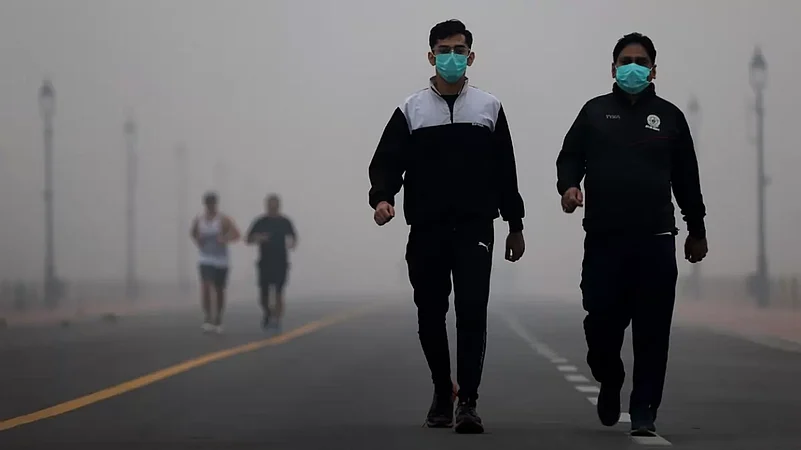Medical professionals are urging the National Medical Commission (NMC) to reinstate the Department of Respiratory Medicine in the MBBS curriculum. The Indian Chest Society, representing over 6,000 respiratory specialists, has highlighted the urgent need for this move amidst India's worsening air quality. With Air Quality Index (AQI) levels soaring to 1,000 in several regions, the severe pollution is driving a surge in respiratory and cardiovascular illnesses, particularly among vulnerable populations like children and the elderly.
Dr. Arun Madan, Head of Respiratory Medicine at Hindurao Medical College, Delhi, expressed alarm at the NMC's decision to exclude respiratory medicine under the 2023 UGMSR guidelines. These guidelines formalized the removal of the specialty from MBBS training programs. “This decision threatens the nation’s capacity to effectively manage respiratory health,” Dr. Madan stated, emphasizing that medical college hospitals have long been hubs for advanced respiratory care and training.
India faces some of the world's worst air pollution levels, with over 99% of the population exposed to harmful PM2.5 levels exceeding WHO safety guidelines, according to Dr. G.C. Khilnani, Director of Respiratory Medicine at PSRI Hospital, Delhi. He warned that removing structured training in respiratory medicine from MBBS courses would hinder medical graduates' ability to diagnose and treat respiratory conditions, potentially worsening public health outcomes.
Dr. Khilnani also pointed out that medical colleges play a pivotal role in implementing programs like the National Tuberculosis Elimination Programme. Excluding respiratory medicine could significantly disrupt efforts to combat TB, chronic obstructive pulmonary disease (COPD), and other serious pollution-related illnesses.
Echoing these concerns, Dr. Manoj Goel, Head of Pulmonary Medicine at Fortis Medical Research Institute, Gurugram, advocated for broader measures to address air pollution. He emphasized adopting clean technologies, expanding renewable energy, and enhancing urban planning to reduce pollution’s health impact. According to WHO estimates, achieving interim air quality targets could save 300,000 lives annually.
The exclusion of respiratory medicine also raises governance concerns, according to Dr. Rakesh Chawla, Vice President of the Indian Chest Society. He criticized the NMC’s lack of transparency, noting that the decision bypassed necessary parliamentary oversight. Dr. Chawla further dismissed the NMC’s justification that the exclusion reduces the burden on MBBS students, calling it a "ridiculous argument" given the rising need for primary physicians to manage respiratory diseases.
Dr. Aditya Chawla, a consultant in respiratory medicine, emphasized that respiratory diseases are among India’s most pressing and urgent health challenges. With the highest global proportion of multidrug-resistant TB cases in 2023, he strongly argued that respiratory medicine must remain a core part of MBBS education to address current and future healthcare demands effectively.
(This article is a reworked version of a PTI feed)


























